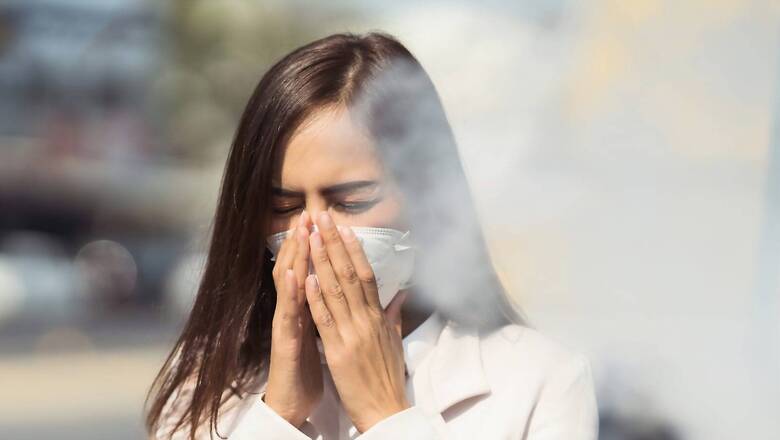
views
Air pollution is one of the main causes of allergies and asthma in winter. An airway that is exposed to pollutants or pollution makes it irritable. Air pollution at a higher index or even generally being exposed to dust will result in long-term inflammation that will eventually affect immunity.
At a cellular level, toll-like receptors are present which stimulate the air pollutants that cause long-term inflammation. If the size of the air pollutant is smaller, it can even reach the lungs causing breathlessness and dust allergies. “These early signs indicate chronic asthma or COPD in the long run if not taken care of at the initial stage. The condition of people who already are suffering from COPD is worse if exposed to air pollution or dust allergies,” says says Dr. Navodaya Gilla, Consultant, Internal Medicine, CARE Hospitals, Banjara Hills, Hyderabad.
Also Read: Deck-Up Your Homes With All Things Fall
“Temperature differences between day and night can cause increased mucus production which is a good medium for bacterial infections. There is an increase in viral infections in winter which can cause cross-infection like Influenza AB and swine flu,” says Dr. Sheela Murali Chakravarthy, Director- Internal Medicine, Fortis Hospital, Bannerghatta Road, Bengaluru.
During winters, there is less exposure to the sun, and people often have Vitamin D deficiency in the long run. “Vitamin D helps in building immunity but the deficiency reduces fighting cells in the body. Furthermore, low blood pressure which occurs in cold climates narrows the blood vessels. This makes it difficult for the transmission of fight cells delaying the immune response. Autoimmune diseases like diabetes are more susceptible to infections as their immunity is already low,” adds Dr Gilla.
Hence, it is always best to cover your nose and mouth with masks whenever there is pollen, dust, or chemicals in the air.
Read all the Latest Lifestyle News here

















Comments
0 comment